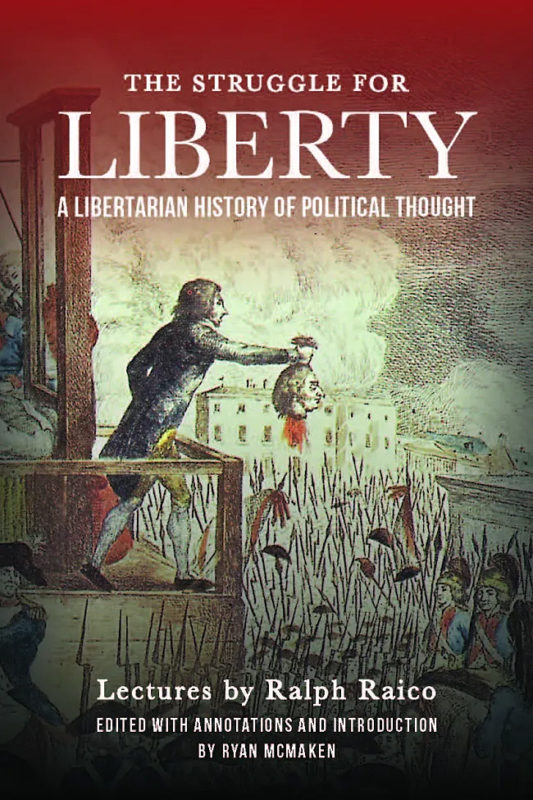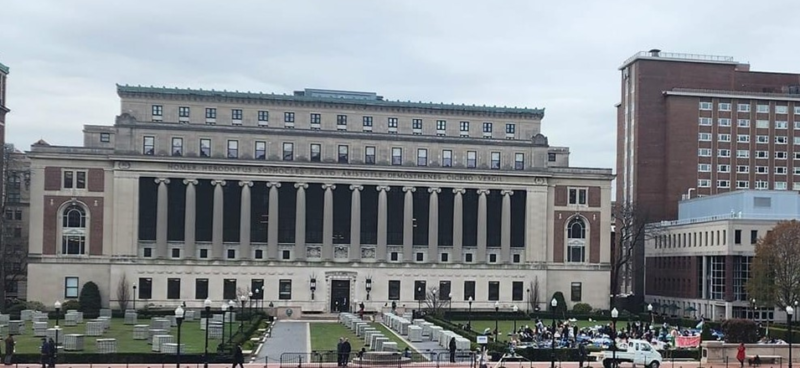Category Archive: 6b.) Mises.org
Free Trade in the Twenty-First Century
What is the Mises Institute?
The Mises Institute is a non-profit organization that exists to promote teaching and research in the Austrian School of economics, individual freedom, honest history, and international peace, in the tradition of Ludwig von Mises and Murray N. Rothbard. Non-political, non-partisan, and non-PC, we advocate a radical shift in the intellectual climate, away from statism and toward a private property...
Read More »
Read More »
Skin Tone Products, Markets, and “White Privilege”
The first time I read about “white privilege” in college was on a Blackboard assigned readings list. This was not a class I attended, but had access to in order to provide some help to the professor. As it turned out, I had read the original paper on this topic: Peggy McIntosh’s “White Privilege and Male Privilege: A Personal Account of Coming to See Correspondences Through Work in Women’s Studies” (1988).While many critiques could be made—and have...
Read More »
Read More »
Foreign Aid, Reparations, And Economic Growth
Developing countries in Africa and the Caribbean continue to press the United Kingdom for reparations, believing that financial compensation will rejuvenate their economies. However, history has demonstrated that large inflows of money from rich nations have failed to spur sustained economic growth. Africa alone has received over $1 trillion in aid, yet economic performance across the continent remains disappointing. Similarly, Commonwealth nations...
Read More »
Read More »
The Struggle for Liberty
[The Struggle for Liberty: A Libertarian History of Political Thought by Ralph Raico. Edited by Ryan McMaken. Ludwig von Mises Institute, 2025; 287 pp.]Ralph Raico was the foremost historian of classical liberalism and one of Murray Rothbard’s closest followers. In 2004, he gave a series of ten lectures at the Ludwig von Mises Institute that were very well received, but the lectures were never printed. We have Ryan McMaken to thank for making them...
Read More »
Read More »
Economic Illiteracy Handicaps Britain’s New Right Wing Party
While much has been written about the “vibe shift” in America since Trump’s reelection, an almost equal feeling of change has recently been felt in British politics. Following the Conservatives’ landslide defeat in July 2024, the incoming Labour government’s popularity collapsed almost as soon as they took office.This general discontent with the major parties, combined with an increasing focus on immigration, seems tailor-made to benefit Reform...
Read More »
Read More »
Herbert Hoover, Enemy of Free Markets
American History is the source of many enduring myths. George Washington didn’t chop down the cherry tree, Abraham Lincoln did not free the slaves (or even end slavery in this country), and Jim Crow was not the natural heir to post-war policies in the South in the 1860s and 70s. But myths persist, not because of any truths inherent in them, but because certain people find it advantageous to promote them. And perhaps there is no greater myth being...
Read More »
Read More »
What Made Europe Different
[Editor’s note: In this selection from The Struggle for Liberty: A Libertarian History of Political Thought, Ralph Raico introduces the idea that western Europe was unique in how it approached the power of civil government and sought to limit it. As we will find later in this chapter, Raico sets the origins of the West’s embrace of freedom in the Middle Ages a period characterized by political decentralization and a salutary conflict between civil...
Read More »
Read More »
4 Lessons We Learned from the Covid Panic of 2020
What is the Mises Institute?
The Mises Institute is a non-profit organization that exists to promote teaching and research in the Austrian School of economics, individual freedom, honest history, and international peace, in the tradition of Ludwig von Mises and Murray N. Rothbard. Non-political, non-partisan, and non-PC, we advocate a radical shift in the intellectual climate, away from statism and toward a private property...
Read More »
Read More »
Karl Marx’s Missing Link: Erasing the Line Between Mercantilism and Capitalism
In Das Kapital, Karl Marx outlined a historical progression of socioeconomic systems: tribal communism, slave societies, feudalism, capitalism, socialism, and communism. However, one notable omission from this framework is mercantilism. Why was it left out? While mercantilism and capitalism overlap, they are distinct systems with different economic policies, modes of production, and underlying principles. By omitting mercantilism, Marx could...
Read More »
Read More »
Libertarian Literary and Media Criticism
[Editor’s Note: This following article is an adaptation of the introduction to Libertarian Literary and Media Criticism: Essays in Memory of Paul A. Cantor, Edited by Jo Ann Cavallo (London: Palgrave Macmillan, 2025. Paul Cantor was (1945-2022) was a student of Ludwig von Mises and an important contributor to mises.org on topics of the intersection between markets and culture.]This collection of essays by experts in diverse fields applies...
Read More »
Read More »
What Might Austerity Look Like in 21st-Century America?
The word “austerity” is defined as sternness or severity of manner or attitude; extreme plainness and simplicity of style or appearance; conditions characterized by severity, sternness, or asceticism; or a way of life that limits luxuries. Austerity is also defined as a set of policies that reduce government spending and increase taxes. These policies can include “austerity measures,” often used during economic crises, including cutting government...
Read More »
Read More »
The Far-Left’s Violent Attacks on Tesla are Revealing
In recent weeks, there has been a sharp increase in violent attacks aimed at destroying cars and other property carrying the logo of Elon Musk’s electric car company, Tesla. In Colorado, a woman was charged with using Molotov cocktails to set multiple cars at a Tesla dealership on fire before painting the word Nazi on a store sign. In Oregon, one man fired a rifle into one Tesla dealership while someone else fired shots and threw explosives into...
Read More »
Read More »
The Far-Left’s Violent Attacks on Tesla are Revealing
What is the Mises Institute?
The Mises Institute is a non-profit organization that exists to promote teaching and research in the Austrian School of economics, individual freedom, honest history, and international peace, in the tradition of Ludwig von Mises and Murray N. Rothbard. Non-political, non-partisan, and non-PC, we advocate a radical shift in the intellectual climate, away from statism and toward a private property...
Read More »
Read More »
Fourteenth Amendment DEI Lawfare
The politics of the Fourteenth Amendment recently returned to global attention when Colorado attempted to remove President Donald Trump’s name from their presidential election ballot, an attempt that was thwarted by the United States Supreme Court ruling that “Colorado cannot enforce section 3” of the Fourteenth Amendment as states lack power to do so. The jubilation with which the Supreme Court intervention was greeted overshadowed any concerns...
Read More »
Read More »
How Executive Power Can Dismantle the Deep State
What is the Mises Institute?
The Mises Institute is a non-profit organization that exists to promote teaching and research in the Austrian School of economics, individual freedom, honest history, and international peace, in the tradition of Ludwig von Mises and Murray N. Rothbard. Non-political, non-partisan, and non-PC, we advocate a radical shift in the intellectual climate, away from statism and toward a private property...
Read More »
Read More »
Cuts to Foreign Aid Are a Good Start
On January 20th, the Trump administration indicated it would pause foreign aid to most countries for 90 days. Newly-confirmed Secretary of State, “Little” Marco Rubio, confirmed this and paused “all new obligations of funding, pending a review, for (U.S.) foreign assistance programs funded by or through the Department and USAID.”He also recently floated closing USAID permanently and merging it with the State Department. It is right to credit the...
Read More »
Read More »
Ralph Raico’s Master Class on the History of Political Thought
[This article is the introduction to The Struggle for Liberty: A Libertarian History of Political Thought, by Ralph Raico, now available in the Mises Book Store, online at mises.org, and at Amazon.com.]It is appropriate, unfortunately, that Ralph Raico (1936–2016) begins this series of lectures with an anecdote about Lord Acton. Acton, as Raico notes, was an exceptionally erudite historian and a proponent of radical laissez-faire liberalism—also...
Read More »
Read More »
Kennedy Assassination Mysteries
Why should we care today about the assassination of President John F. Kennedy on November 22, 1963? That fateful day in Dallas is, after all, a long time ago: those of us, like me, who can remember the day are at least in their sixties. The short answer is that it reveals something essential for us to know about the American government and the Deep State that runs it.Kennedy had become deeply suspicious of the CIA and other American intelligence...
Read More »
Read More »
Oops, Trump Just Bankrolled the Protesters He Intended to Silence
I’ve been thrilled with much of what Donald Trump has done as president. He’s working to end the Ukraine war, secure the border, end the war on cryptocurrency, and cut government waste—all things I strongly support. But cutting federal funding over campus protests backfired so badly, it convinced Columbia’s most insufferable activists that they actually matter.Last Friday, the Trump administration announced it was cutting $400 million in federal...
Read More »
Read More »
The New Higher Education “Arms Race”
Forty years ago, collegiate institutions competed to attract the last big surge of baby-boomer 18-year-olds, offering campus amenities—fancy dormitories, swanky recreation centers with climbing walls, upgraded athletic facilities, palatial dining halls—that were, at the time, derisively described as an “arms race” among schools.I once asked the then-president of my own alma mater—an east coast liberal arts college—how the school justified spending...
Read More »
Read More »






















